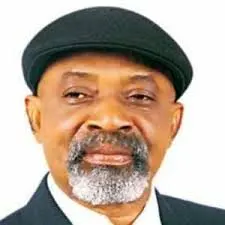
The Federal Government has urged the Nigeria Labour Congress (NLC) to withdraw its opposition to the formation of two new academic unions in the Nigerian public university system.
Sen. Chris Ngige, Minister of Labour and Employment, made the call on Tuesday in Abuja in a statement signed by Mr Olajide Oshundun, Head, Press and Public Relations.
The new unions, according to the News Agency of Nigeria (NAN), are the Congress for Nigerian University Academics (CONUA) and the Nigeria Association of Medical and Dental Academics (NAMDA).
According to NAN, the ministry in Abuja recently recognized CONUA and NAMDA with letters of recognition.
However, in a letter to Ngige, the President of the NLC, Mr Ayuba Wabba, urged that the letters granted to the unions be withdrawn on the grounds that their registration violated the laws governing trade unionism.
In his response on October 12, Ngige urged the NLC to allow the new unions to exist in the spirit of Freedom of Association.
The minister claimed that the Trade Disputes Act of 2004 gave him sole authority to register new trade unions, whether by forming a new union or reorganizing existing ones.
He stressed that the new unions were offshoots or byproducts of regrouping, and their applications were reviewed by two ministerial committees.
He stated that the Registrar of Trade Unions was present when the first suggestion for approval was made in 2019, and again in 2022.
He also stated that CONUA and NAMDA were separated from the Academic Staff Union of Universities (ASUU) in order to improve system efficiency and effectiveness.
More critical, the minister stated, is to protect these groupings of university instructors whose viewpoint varies from that of the agitated parent union.
“Comrade President, do not block the registration of these new academic unions unnecessarily.”
“Because with ASUU, they are all like seeds on the academic soil of Nigeria, and we don’t know which would grow into huge trees, but we do know which of her trees are not giving excellent fruits.”
“So, as an uncle of unions, I oppose none in the spirit of Free Association,” he stated.
He stated that Section 3 (2) of the Trade Dispute Act, CAP T14, grants the Minister of Labour and Employment sole authority to register new trade unions, either by registering new trade unions or regrouping existing ones.
He went on to say that the problem has been litigated before the National Industrial Court of Nigeria (NICN) in the most recent case, which the President of the NLC failed to mention in his narration of court cases,
“The case of the Nigerian Union of Pensioners (NUP) and the regrouped Federal Parastatals and Private Sector Pensioners Association of Nigeria (FEPPAN) from NUP, in which the Law on Trade Union Regroupment was extensively investigated and ruled upon.”
“Unlike the incidents provided by the NLC’s President to misinform the general public and, unfortunately, lead astray his associate Trade Union – ASUU,” he stated.
Ngige recalled that the NICN, in Suit No. NICN/ABJ/219/2019, backed up its previous judgement on the case, which stated, among other things, that the ability to register trade unions is held by the Minister of Labour and Employment.
He pointed out that the final section of Clause 3(2) does not refer to the regrouping of existing trade unions, thus the distinction within the section between creating a new trade union and reuniting existing ones.
We take note of your reference to Section 5 of the same Act, which deals with the “Procedure on receipt of application for registration” of a Trade Union, he says.
“In particular, Section 5(4) specifies that the Registrar shall not register a trade union if it appears to him that any existing trade union is sufficiently reflective of the interests of the class of workers concerned-CONUA members were ostracized and de-unionized by ASUU.”
“Do we, as the “Competent Authority” on Labour affairs, including trade union services, pay respect to ASUU and agree to leave a huge proportion of lecturers and academia un-unionized, without protection, a voice, or a right at work?”
Are these workers not covered by ILO Conventions 87 and 97?”
Ngige stated on NAMDA that there are medical doctors lecturing in universities who are opposed to ASUU’s continuous, lengthy, and unlawful strikes.
“They claimed that the strike had disrupted medical training and caused collateral harm to the educational system, as well as the quantity and quality of future medical doctors and dentists in Nigeria.”
“They have been teaching and some have graduated their pupils since the ASUU strike began on February 14, 2022.” Medical professors at Maiduguri, Bauchi, and Sokoto universities are true patriots.
“Moreover, their unique demands are significantly distinct from the rest of ASUU members, and they are frequently excluded from welfare and career advancement in universities – the main tasks of a registered labor union,” he added.
Ngige consequently advised the NLC President to refrain from using his position to mislead the general people by misquoting Labour Authorities.
He went on to say that if ASUU feels wronged, they can go to court as law-abiding individuals, just like the Federal Government does through the Federal Ministry of Labour and Employment.
“That is, in accordance with the authority provided by Section 17 of the TDA, I referred the FG/ASUU trade dispute to the NICN for adjudication, owing to the union’s reluctance to comply with the conditions of Section 18 of the TDA, conciliation having failed,” he explained.